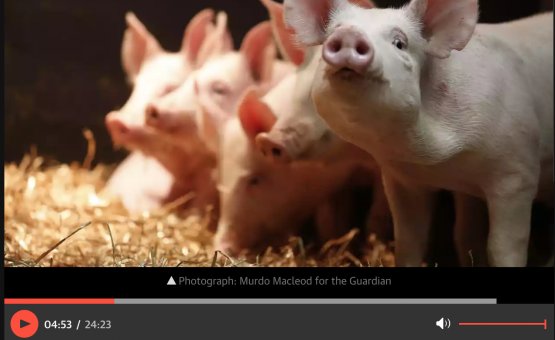The NPA’s Georgina Crayford has highlighted the potential benefits to the pig industry of the production of PRRS-resistant pigs bred using gene editing techniques.
But in an excellent interview for the Guardian science podcast, Georgina also stresses that farmers would need to be convinced that the public is ready for pigs produced using this relatively new breeding technique.
The Guardian podcast, presented by Hannah Devlin, follows this week’s announcement that scientists from Edinburgh University’s Roslin Institute, working with Genus PLC, used gene editing to change pigs’ DNA to confer resistance to PRRS. They found that none of the animals became ill when exposed to the virus, while blood tests found no trace of the infection.
Georgina explained what PRRS is and how damaging it is for the pig industry globally, before going on discuss the potential significance of this scientific breakthrough.
“For the pig industry, I think this is a really, really exciting bit of research because potentially it could offer a solution to a disease that is really troublesome to the industry,” she said.
“Farmers would definitely be very favourably towards PRRS-resistant pigs. But I think pig farmers would want to be assured that if, in future these pigs were going to be available to use commercially on farms, that there is going to be a market for those pigs.
“They would want to be assured that consumers and the supermarkets would accept pork from those pigs. And that conversation needs to be started now to understand the acceptance of the general public to this gene editing technique.”
The podcast also examined the science behind the breakthrough and looked further at the issues around the public acceptability of gene editing and how it differs from genetic modification.
You can listen to the podcast here




